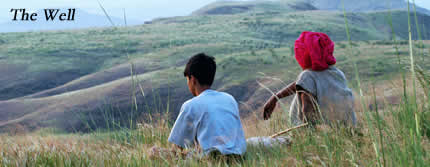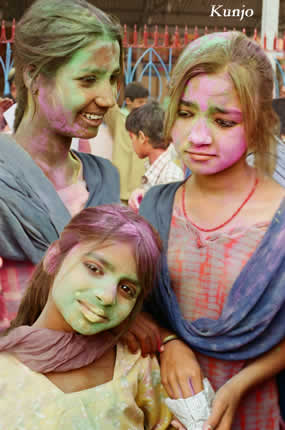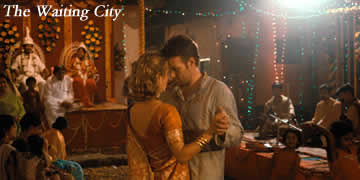 Christina Marouda, Executive Director of Indian Film Festival, LA and President of IFFLA Board of Directors prior to launching IFFLA in 2002 worked in various capacities. She worked at Lions Gate Entertainment, the American Film Institute (AFI) Film Festival, and the Los Angeles Film Festival (LAFF). Ms. Marouda also produced the Los Angeles Greek Film Festival in 2008. She participated in the prestigious IFP Producers Lab where she honed her producing skills and is now producing the short film TRANCE directed by Andrew Scoles. Born and raised on the island of Crete in Greece, Ms. Marouda’s went on to earn a B.A. in International Relations from the Athens University of Economics, an MBA in Marketing from California State University, Long Beach, and a certified program in “Business and Management for Entertainment: Marketing and Distribution”, from the University of California, Los Angeles (UCLA).
Christina Marouda, Executive Director of Indian Film Festival, LA and President of IFFLA Board of Directors prior to launching IFFLA in 2002 worked in various capacities. She worked at Lions Gate Entertainment, the American Film Institute (AFI) Film Festival, and the Los Angeles Film Festival (LAFF). Ms. Marouda also produced the Los Angeles Greek Film Festival in 2008. She participated in the prestigious IFP Producers Lab where she honed her producing skills and is now producing the short film TRANCE directed by Andrew Scoles. Born and raised on the island of Crete in Greece, Ms. Marouda’s went on to earn a B.A. in International Relations from the Athens University of Economics, an MBA in Marketing from California State University, Long Beach, and a certified program in “Business and Management for Entertainment: Marketing and Distribution”, from the University of California, Los Angeles (UCLA).
Bijan Tehrani: Please tell us a little bit about the Indian Film festival in Los Angeles and its history.
Christina Marouda: Indian Film Festival, LA started in 2003 and this is our eight year, it has always been an archetype in Hollywood. Every year we have showcased about 40 films including feature films, shorts and documentaries. Over the course of the years, we’ve extended the festival from 4days to 6 days and we have added more films and we have doubled our audience. In the first year we had about 3, 500 people and now we have had over 7,000 attending the festival. We have a number of activities that are more industry oriented because we really try to combine the creative and business sides of the industry together. We want to bridge the gap between the Indian and  U.S.entertainment industries.
U.S.entertainment industries.
BT: What are the different film categories that are introduced at the festival?
CM: We start with our opening night Gala which is a red carpet event where we screen premiers, it is followed by a reception for about 500 people and that officially kicks off the festival. The back ending the festival we have the closing night gala which is a similar format, a red carpet event but it also includes our award ceremony, where we give audience and jury awards top best feature, best documentary and best short film and then we have the closing night party. In between we have our features competition that includes about seven or eight films every year and we feature a couple of first time directors. We then have our documentaries competition, our shorts and then what we call Bollywood by night, where we show more mainstream Bollywood films. It’s a great introduction to Indian classic films and main stream cinema. This section is always held at night and we have intermissions. Our partner in this section is Arclight Theaters for what we call 21 plus screenings, where when you buy a ticket you have access to the bar and are allowed to bring alcohol in the  theater. We also have performances in the Arclight Courtyard, where we have free dance and music performances.
theater. We also have performances in the Arclight Courtyard, where we have free dance and music performances.
BT: Does the festival feature films from the more intellectual aspect of Indian?
CM: Our competition usually includes films that come from main stream cinema as well as independent cinema in India. A lot of those films are very though provoking and are not traditional main stream drama type of films. Our documentaries also deal with topics such as farmer suicide in India, surrogate mothers in India, films about Tibet and the Dalai Llama; so I think that overall people can come and definitely be able to cultivate their knowledge about Indian history and culture. 
BT: Please tell us about the short films section of the festival?
CM: The short films vary, we have films from animation to experimental to more music video type to more dramatic films so they really range. So it’s a great way for a viewer to see the different type of talents that are coming out of India. In a just 8-9 minutes a viewer can be exposed to a very different type of cinema. Our festival makes it a point to present at least two short programs a year and this year we have 14 short films to be shown and a lot of them will have the director’s in town. They are treated the same as feature films and you will be able to meet the, producer, editor or at least the director that has written and produced a short film.
BT: What kinds of guest do you expect to have at the festival this year?
CM: We have director’s from the opening and closing night films who will be there. The opening film is Cooking with Stella directed by Dilip Metha. The closing night film is an Australian production which is called The Waiting City the director Claire McCarthy and also Radha Mitchell who is the films star. We also have the 40-50 filmmakers who will be coming to town to present their films, including our jurors and some other delegates. We have a number of industry oriented events during the festival. One of our Industry event will be the leadership awards which take place at the house of blues every year where we honor and Indian based and U.C. based executive every year. This year we are honoring the head of Fox International productions from the U.S. Sanford Panitch and from Indian we are honoring Ashok Amritraj who is the CEO of Star Indian which is a prominent Indian TV Channel. We also have a number of free programs that deal with animation.
BT: Please tell us a little bit about the different types of awards that will be given at the festival.  CM: We have our awards ceremony on the closing night of the festival and it includes six awards; we have the audience award, where the audience votes for best feature, best documentary and best short. Then we have the Grand Jury prizes for the same categories. This year we have an additional seventh award which is where we award grants to filmmakers.
CM: We have our awards ceremony on the closing night of the festival and it includes six awards; we have the audience award, where the audience votes for best feature, best documentary and best short. Then we have the Grand Jury prizes for the same categories. This year we have an additional seventh award which is where we award grants to filmmakers.
BT: How can film fans attend the festival?
CM: There are tickets available online at www.arclightcinemas.com; tickets are also available at the box office at Arc Light on Sunset and Vine. If people are interested in buying passes they can go to our website at www.indianfilmfestival.org, over there they can also find tickets to the seminars and the leadership awards.
BT: Will there be Q&A; with the filmmakers after the movies?
CM: Pretty much every program except for two will have a Q&A; after the screening, so the audiences can interact with the filmmakers.

